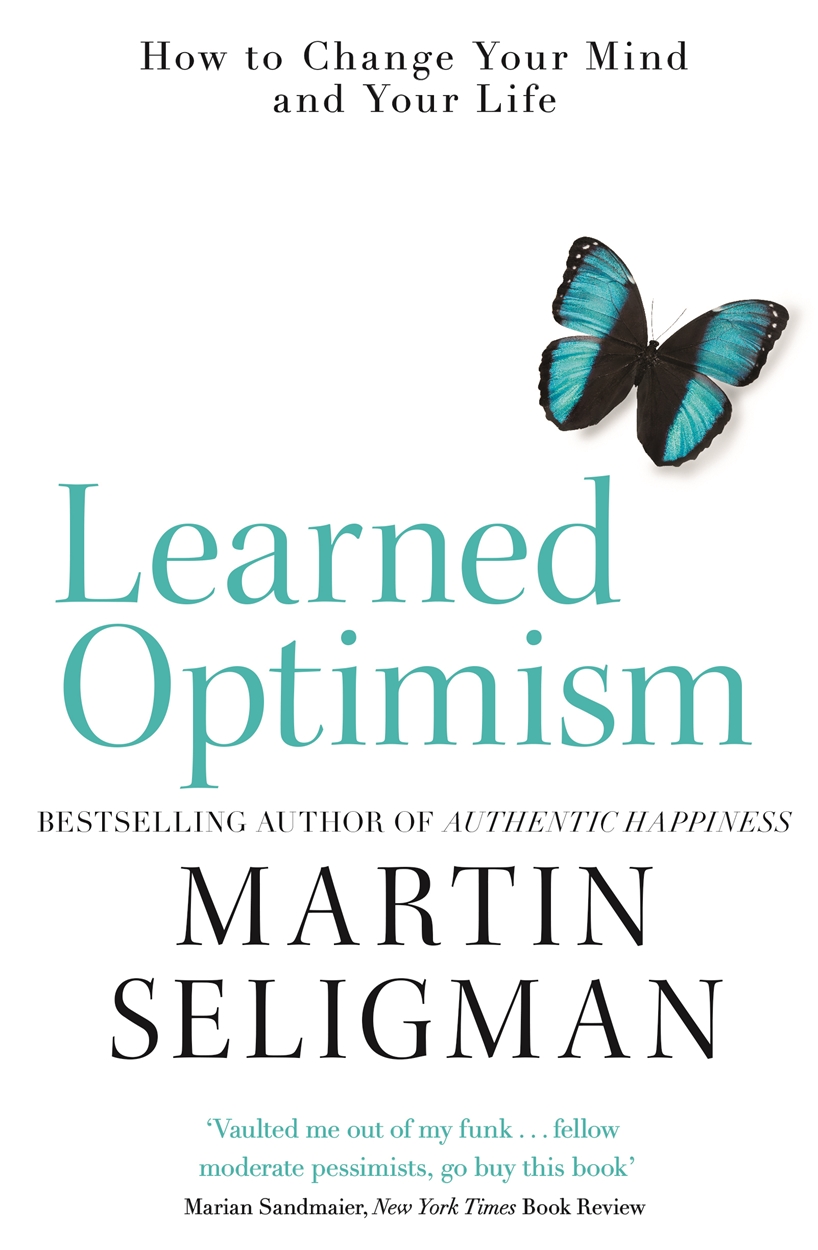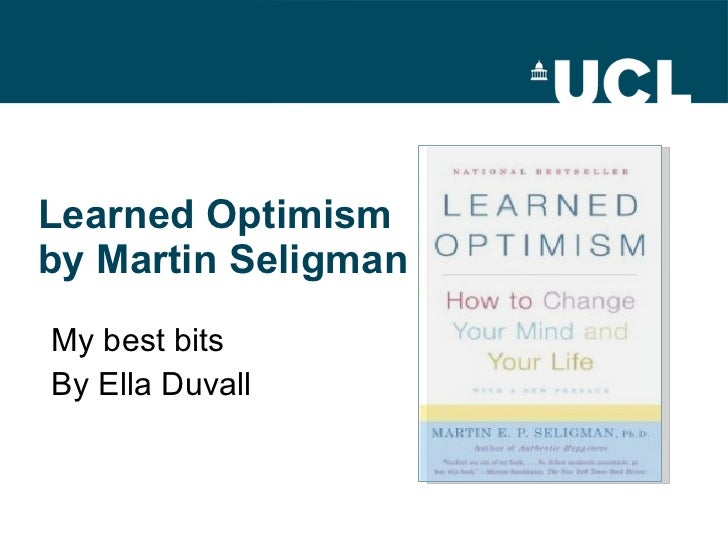

The authors do not believe that there is a hierarchy for the six virtues no one is more fundamental than or a precursor to the others. Each of these has three to five sub-entries for instance, temperance includes forgiveness, humility, prudence, and self-regulation. Their list includes six character strengths: wisdom/knowledge, courage, humanity, justice, temperance, and transcendence. In their research they looked across cultures and across millennia to attempt to distill a manageable list of virtues that have been highly valued from ancient China and India, through Greece and Rome, to contemporary Western cultures. While the DSM focuses on what can go wrong, Character Strengths and Virtues (2004) is designed to look at what can go right.
#SELIGMAN LEARNED OPTIMISM BOOK MANUAL#
Seligman worked with Christopher Peterson to create what they describe as a "positive" counterpart to the Diagnostic and Statistical Manual of Mental Disorders ( DSM). In his 2002 book Authentic Happiness, Seligman saw happiness as made up of positive emotion, engagement and meaning. In later years, alongside Abramson, Seligman reformulated his theory of learned helplessness to include attributional style. Seligman saw a similarity with severely depressed patients, and argued that clinical depression and related mental illnesses result in part from a perceived absence of control over the outcome of a situation. Seligman developed the theory further, finding learned helplessness to be a psychological condition in which a human being or an animal has learned to act or behave helplessly in a particular situation-usually after experiencing some inability to avoid an adverse situation-even when it actually has the power to change its unpleasant or even harmful circumstance. Quite by accident, Seligman and colleagues discovered that the experimental conditioning protocol they used with dogs led to behaviors which were unexpected, in that under the experimental conditions, the recently conditioned dogs did not respond to opportunities to learn to escape from an unpleasant situation. Seligman's foundational experiments and theory of "learned helplessness" began at University of Pennsylvania in 1967, as an extension of his interest in depression. Main article: Learned helplessness Inescapable shock training in the shuttle box On June 2, 1989, Seligman received an honorary doctorate from the Faculty of Social Sciences at Uppsala University, Sweden. in psychology from University of Pennsylvania in 1967. He turned down a scholarship to study analytic philosophy at Oxford University, and animal experimental psychology at the University of Pennsylvania, and accepted an offer to attend the University of Pennsylvania to study psychology.

He earned a bachelor's degree in philosophy at Princeton University in 1964, graduating summa cum laude. He was educated at a public school and at The Albany Academy.

Seligman was born in Albany, New York, to a Jewish family. His most recent book, The Hope Circuit: A Psychologist's Journey from Helplessness to Optimism, was published in 2018. Seligman has written about positive psychology topics in books such as The Optimistic Child, Child's Play, Learned Optimism, Authentic Happiness, and Flourish. He is the founding editor-in-chief of Prevention and Treatment (the APA electronic journal) and is on the board of advisers of Parents magazine. Seligman was elected president of the American Psychological Association for 1998. He is the director of the university's Positive Psychology Center. He was previously the Director of the Clinical Training Program in the department, and earlier taught at Cornell University. Seligman is the Zellerbach Family Professor of Psychology in the University of Pennsylvania's Department of Psychology. A Review of General Psychology survey, published in 2002, ranked Seligman as the 31st most cited psychologist of the 20th century. His theory of learned helplessness is popular among scientific and clinical psychologists. Seligman is a strong promoter within the scientific community of his theories of well-being and positive psychology. Martin Elias Peter Seligman ( / ˈ s ɛ l ɪ ɡ m ə n/ born August 12, 1942) is an American psychologist, educator, and author of self-help books.


 0 kommentar(er)
0 kommentar(er)
